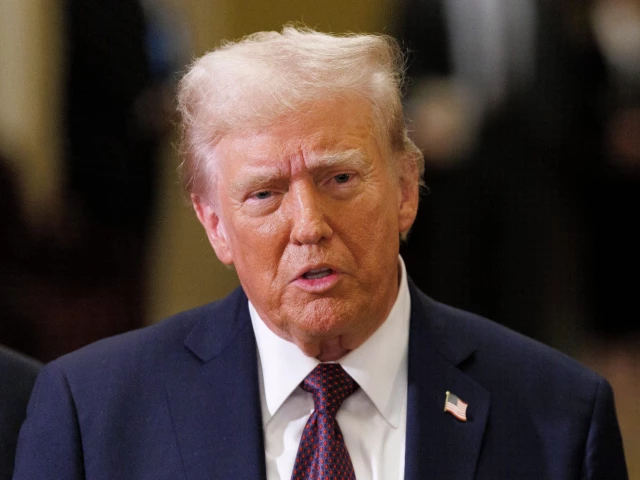Trump's tariffs offer Pakistan a roadmap
Unfair imports undermine local manufacturing, anti-dumping measures stalled by legal challenges

As Pakistan grapples with a widening trade deficit, rising unemployment, and an exodus of multinational firms, experts are urging the government to adopt a more aggressive protectionist approach - similar to US President Donald Trump's "America First" strategy - to safeguard domestic manufacturing.
Trump's economic policy, which relied heavily on import tariffs and punitive measures against American companies outsourcing production, was cited by analysts Shahbaz Rana and Kamran Yousaf in Express News show "The Review" as a model worth emulating.
"We want to build, create and grow more products in our country using American labour, American goods and American grit," said Trump in a July 17 speech at White House as he kicked off "Made in America" week in his push for "America First" approach.
Trump didn't just promote American industry - he forced it back onshore through tariffs and threats of action, the analysts said, adding that Pakistan needs to do the same if we want to avoid economic collapse. "We need to follow Trump's strategy: Protect Pakistan's local industry."
Pakistan's trade deficit surged by 33% in just three months, reaching $9.4 billion, according to official data. Meanwhile, major companies such as Procter & Gamble, Telenor, Microsoft, and Gillette have either shut down operations or scaled back significantly.
The analysts attribute this decline to a combination of sudden tariff reductions, rising costs of doing business, and a lack of protection from dumped imports, particularly from China. In June, the government slashed import duties overnight, a move that critics say left local manufacturers vulnerable to heavily subsidised and underpriced imports.
Sectors hit hardest include Steel, Paper & Board, Electronics, Pharmaceuticals, Construction materials, Textiles, and Food packaging. Industry bodies report that Chinese exporters routinely modify product specifications to bypass existing anti-dumping measures, flooding the market with near-identical goods at below-market prices.
Efforts to combat dumping have also been stymied by legal hurdles, according to the analysts. Although the National Tariff Commission (NTC) has imposed duties in several cases, manufacturers complain that enforcement is weak due to protracted legal battles and judicial interference. "Once duties are imposed, cases are dragged into courts, sometimes for years," the analysts said.
"Even after final rulings, enforcement remains uncertain," the analysts said, describing "unfair dumping as a death sentence for Pakistani industries."
A recent IMF report on Pakistan's judicial system found commercial disputes clogging courts, with slow adjudication harming investor confidence and policy enforcement.
Local manufacturers also point to structural disadvantages that prevent them from competing fairly:
High tax burden: Corporate tax is 29%, with an additional 10% super tax and dividend taxes, taking the total effective tax burden above 50%.
Expensive Utilities: Electricity and input costs in Pakistan remain significantly higher than in regional competitors.
Problematic Trade Deals: The 2005 Free Trade Agreement (FTA) with Chinaand its expanded Phase II signed in 2019opened Pakistani markets to foreign goods without adequate safeguards for local industries.
As domestic firms shut down, unemployment continues to climb. The World Bank has attributed rising poverty in Pakistan partly to a failing economic model that prioritises trade over industrial development.
The analysts warn that once local firms exit the market, importers who initially dumped cheap goods often hike prices, creating monopolies and contributing to inflation. "This is a classic domino effect," the analysts said. "First comes deindustrialisation, then job losses, and eventually, long-term economic dependency on imports."
Industry leaders are urging Prime Minister Shehbaz Sharif's government to take immediate corrective action. The recommendations include rebuilding tariff protections for vulnerable sectors; empowering the NTC with faster enforcement mechanisms; reforming the commercial court system to prevent endless litigation; revisiting trade agreements that expose local manufacturers to unfair competition; and publishing the IMF's Rule of Law report to increase transparency and accountability
"There's a clear choice before the government," the analysts said. "Do we continue down the road of fueling foreign industries and killing jobs at home - or do we take bold steps to build a manufacturing economy and protect national economic sovereignty?"
The analysts said that if we want Pakistan to survive economically, we must follow Trump's strategy - not in words, but in tough, unapologetic action.
























COMMENTS
Comments are moderated and generally will be posted if they are on-topic and not abusive.
For more information, please see our Comments FAQ